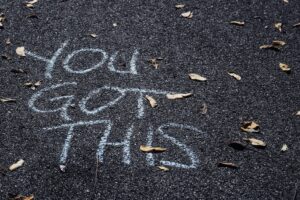This guide aims to help you distinguish between exhaustion and failure, enabling you to approach challenges with renewed energy rather than giving up prematurely. 🌟
When you're feeling overwhelmed or worn out, it's easy to mistake the need for rest as a sign that you have failed — but that's not the case. 🧠💤
Understanding how to rest effectively ensures that you can recharge and come back stronger, turning setbacks into opportunities for growth. 🔄💪
Recognize the Signs of Exhaustion ⚠️
First, start by paying attention to your body and mind. Signs of exhaustion can include:
Persistent fatigue 😴
Decreased motivation 😕
Irritability 😠
Difficulty concentrating 🤯
When you notice these signals, it's a clear indication that your energy stores are depleted, not that you are incapable. Take this as an invitation to pause and give yourself some relief, rather than pushing harder and risking burnout.
Create a Personalized Rest Plan 📝
Next, create a plan for rest that fits your lifestyle. Rest doesn't always mean stopping everything completely; sometimes it means changing your activity or slowing down. You could try:
Short breaks throughout your day 🧊
Activities that soothe your mind (reading, walking, mindfulness) 🧘♀️📚🚶
Setting boundaries around work and personal time 🛡️
Enjoying nature or spending time outdoors to refresh your senses 🌳☀️
Practicing deep breathing or gentle stretching to reset your focus 🧘♂️🌀
These strategies help protect your energy reserves and support long-term well-being.
Shift Your Mindset About Rest 🔋
Additionally, avoid the mindset that resting equals quitting. When you rest, you're investing in your ability to return with greater focus and strength. Think of it like a battery that needs to recharge—you wouldn't expect a device to run indefinitely without a pause. Embracing this mindset reinforces your resilience and permits you to take time off without guilt.
Use Breaks Wisely 🛏️🍎
When you do take breaks, use them wisely to support your recovery and restore your energy. This might be through:
Quality sleep 😴
Nutritious food 🥗
Social connection 🤝
Physical activity that lifts your spirits 🏃
You can also explore creative hobbies or light entertainment that brings you joy without draining your focus.
Avoid filling your rest time with activities that cause additional stress or mental clutter, such as endless scrolling through social media or engaging in conflict. 📵
Ease Back into Action 🔄
After your resting phase, gradually return to your tasks or goals. Getting started again after a pause can be intimidating, but breaking your work into manageable steps helps reestablish momentum. Celebrate small wins 🎉 and acknowledge the progress you make. This reinforces that taking a break was a positive and practical choice, not a defeat.

Practice Self-Compassion 💖
Lastly, develop self-compassion throughout this process. You have limits, and respecting them allows you to sustain your efforts over the long term. Instead of beating yourself up for feeling tired or needing downtime, treat yourself with kindness and patience. This attitude supports mental well-being and fosters a healthier relationship with your work and personal goals.
“Learning to rest, not to quit, is a key skill to maintain your productivity, creativity, and happiness.”
The Power of Rest for Long-Term Success 🚀
By recognizing exhaustion as a sign to pause, planning your rest intentionally, and returning with confidence, you set yourself up for lasting success. Your ability to bounce back stronger after rest will empower you to overcome obstacles and keep moving forward toward what matters most.
🧘♀️ Start Your Self-Care Routine: If you're feeling drained or overwhelmed, try Headspace — an award-winning mindfulness app that helps you recharge with guided meditations, sleep sounds, and stress relief sessions.



